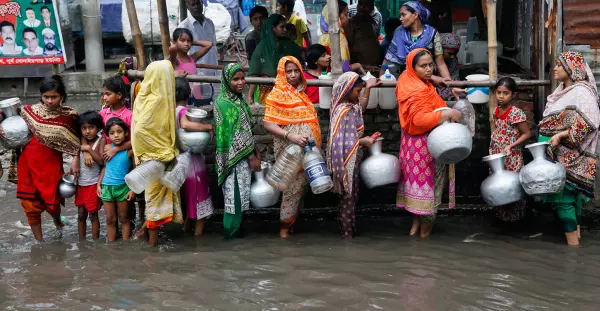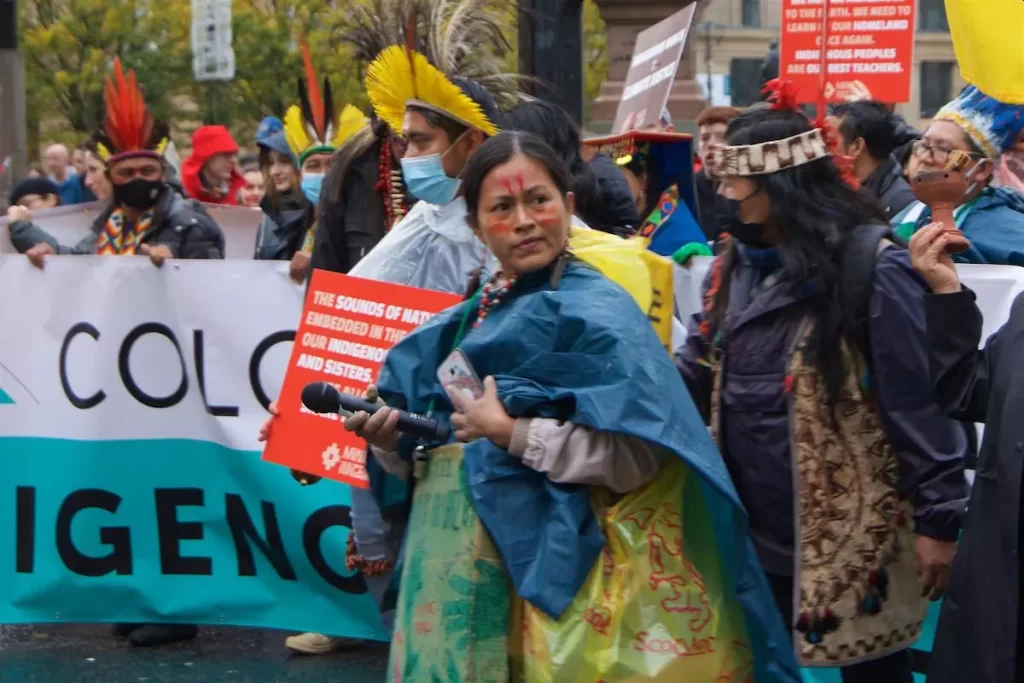In many parts of Africa, Asia, the Pacific, Latin America and the Caribbean, women and girls oversee household water supply as well as ensure food security, producing between 60 to 80% of food. Water and food are the basis of the women’s tasks and livelihoods in low-income economies. In a time of climate change, these have become increasingly critical challenges.
Ruth Nyambura from Kenya, founder of the African Ecofeminist Collective, observed that in many communities “access to water is mediated by access to land…and in the urban areas, it’s about class.”
This is a matter of climate and gender justice because heightened droughts and weather disturbances together with “social responsibilities put on women’s shoulders are exacerbating inequalities,” she explained.
Winnifred Mailu who heads capacity building at Send a Cow in Kenya observed that “in the big story of the reduction of greenhouse gas emissions, the gender narrative is either missing or not adequately covered.”
Nonetheless, “there is a some recognition that women are already ahead on climate change adaptation albeit at small scale. For example, backyard or kitchen gardening by women has fed families for a long time without pesticides and using waste or recycled water,” she said.
From Uganda, Catherine Udowa, who also works with Send a Cow, shared a story of women rising to challenges posed by climate change. “The drought was so severe that women used to walk for one hour to look for water.” Women walked together to the water source to reduce risks of abuse.
“The water level started reducing and conflicts started arising at the source as people scrambled for water.” In response, the women in community established a “committee for water point management.”
Renemsongla Ozukum, a member of the ecology working group of the National Council of Churches in India and of the climate change working group of the WCC offered an Indigenous vision. In almost all Indigenous Naga communities in Northeast India “the conservation and sharing of seeds and plants comprise an age-old heritage system,” she said.
“We do this with hope…to promote a ‘manna’ economy, save plant genetic biodiversity which is a treasure trove, ensure Indigenous food production skills for younger generations and recognise indigenous knowledge systems and their contribution to sustaining ecology and life,” she added.
The webinar was moderated by Joy Kennedy, chair of Climate Action Network Canada and moderator of the WCC Working Group on Climate Change.
Tags: food and climate change, Webinar explores how women navigate nexus of water



